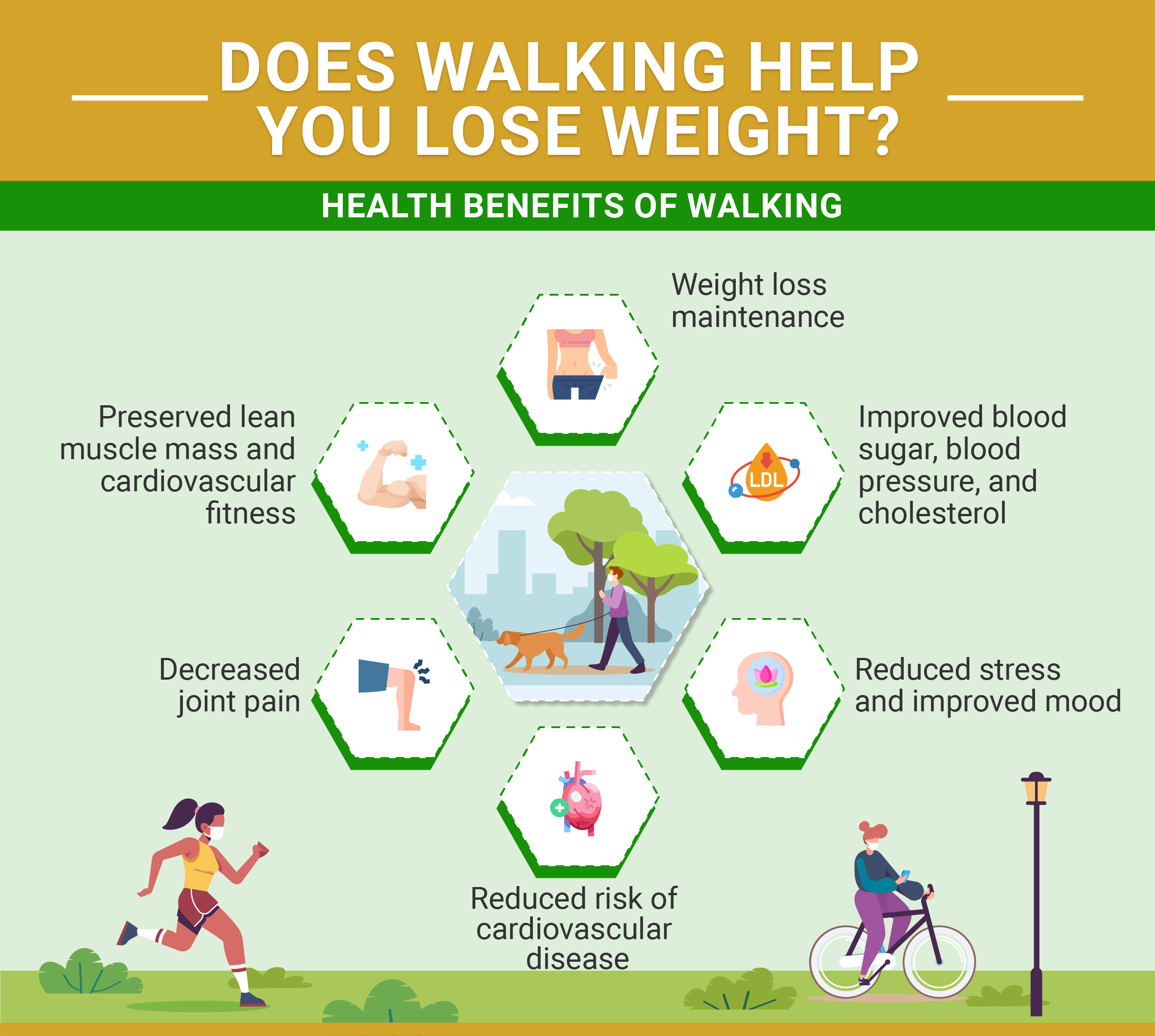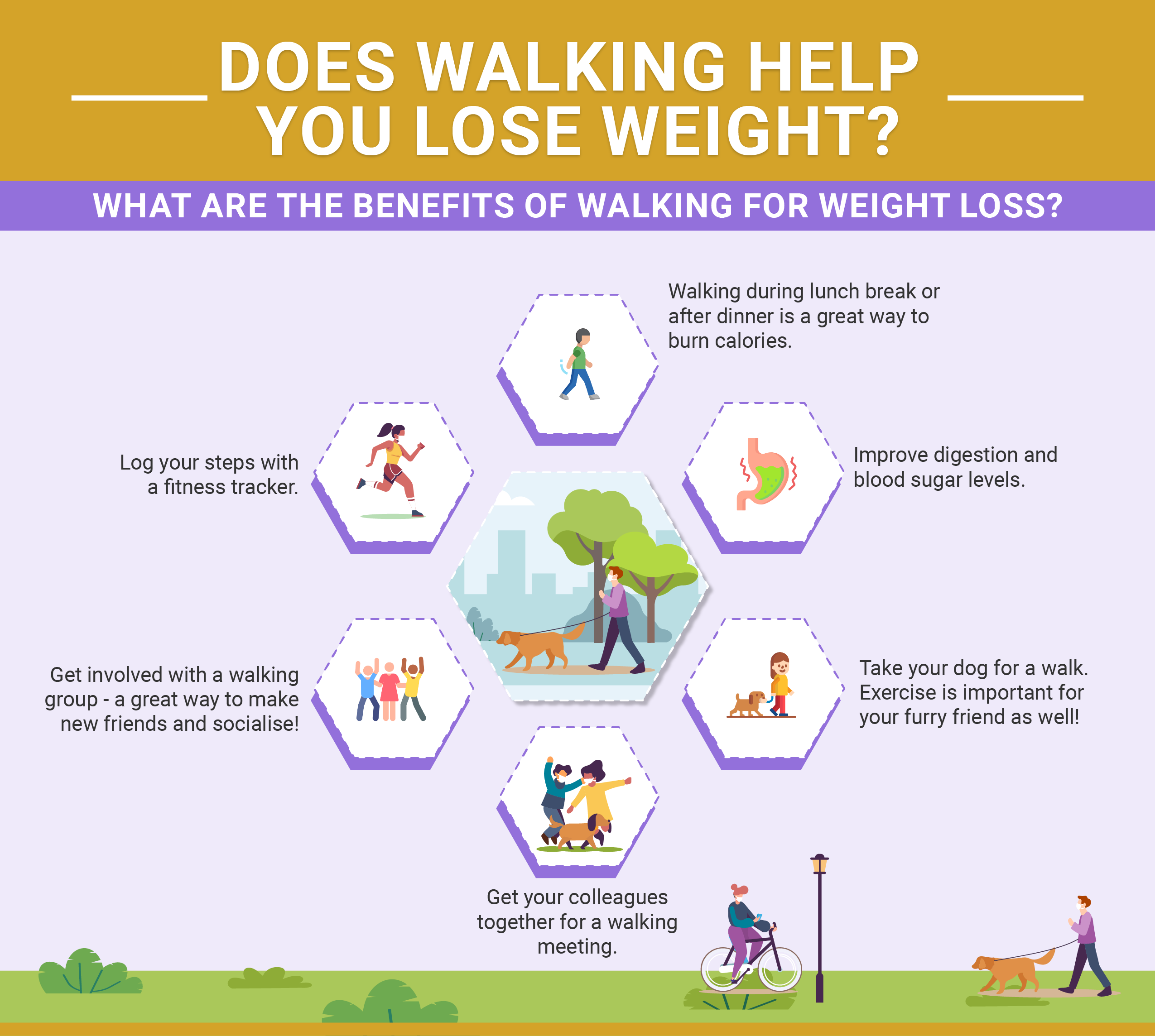Does Walking Help You Lose Weight?
Our daily lives revolve around walking, a basic human skill we learn early. In addition to walking, we have been taught that physical activity is crucial to weight loss and health improvement. Is walking a good way to lose weight? Let's examine the research.
Walking for weight loss: Is it possible?
Technically, walking can lead to weight loss. According to a review of several small studies, overweight and obese persons who increased their walking by 1-2 miles per day lost one kilogram (2.2 pounds) on average. You probably weren't expecting that much weight loss. This study does not explain how increasing walking speed or duration beyond 2 miles per day may benefit weight loss or provide additional benefits. Physical activity alone does not result in significant weight loss, according to other studies that have evaluated its effects on weight loss.
Physical activity, including walking, is very important to maintain weight loss and health. However, to lose the weight desired by most people, walking must be combined with dietary changes. According to the findings of the National Weight Control Registry, a study that analysed people who successfully maintained a weight loss of at least 30 pounds for one year or more, 98% of participants had to modify their food intake in some way, and 94% had to increase their level of physical activity; therefore, most people are doing both to achieve significant, long-term results.
What is the recommended amount of walking to lose weight?
There are many reasons why this will vary from person to person. A short walk can affect your weight if you're inactive. The required amount will be higher if you walk 10,000 steps daily. Whenever we perform a physical activity over and over, our bodies become more efficient, so the number of calories burned will decrease with repetition. Your diet will also play a role as we talked about.
Brisk walking for 150 to 300 minutes a week would be ideal for overall health, spread out over at least three days. In the meantime, 10 minutes is enough to significantly improve your overall health if you aren't exercising much.
Other Health Benefits of Walking
It is still an important part of a healthy lifestyle regardless of weight loss since walking alone has so many benefits independent of weight loss:

- Weight loss maintenance – Regular physical activity is essential to maintain weight loss and prevent weight gain. 90% of people who maintain a significant weight loss exercise at least an hour a day, and walking is the most common type of exercise reported by them.
- Improved blood sugar, blood pressure, and cholesterol – Numerous studies show that walking reduces the need to take medications for diabetes, high blood pressure, and high cholesterol. Further, the most benefit comes from walking faster and for a longer period of time.
- Reduced stress and improved mood – Numerous studies confirm that physical activity reduces stress and improves mood. After just 6 minutes of walking, mental health benefits were observed, so it doesn't require much time to reap them.
- Reduced risk of cardiovascular disease- Walking is one of the best ways to prevent cardiovascular disease, one of the leading causes of death in the country.
- Decreased joint pain – As counterintuitive as it may seem, walking and other forms of exercise can help relieve arthritis pain and stiffness. The best way to start is to start slowly and for a short time. Consult your healthcare provider about other non-weight-bearing exercises, such as swimming or bicycling, if this is not tolerated.
- Preserved lean muscle mass and cardiovascular fitness – These are perhaps the most important benefits in terms of quality of life. Our ability to move around and care for ourselves decreases as we age due to loss of lean muscle mass and reduced cardiovascular fitness. When we walk and exercise regularly, we preserve lean muscle mass and cardiovascular fitness, which allows us to remain independent, travel, and play with grandchildren as we age.
What Are the Benefits of Walking for Weight Loss?

In addition to being easy to incorporate into your daily routine, walking costs nothing. To help you get moving more, here are some ideas:
- Walking during lunch break or after dinner is a great way to burn calories. Getting active won't be the only benefit, as it can also improve digestion and blood sugar levels. Could you bring your family members along to discuss the day's events?
- Take your dog for a walk. Exercise is important for your furry friend as well! Could you make him your motivation for getting out more often?
- While walking, make a call or catch up with a friend.
- Could you get your colleagues together for a walking meeting? The mood-boosting effect is even greater if you can take it outside.
- Consider walking to work or parking farther away if you can't walk.
- Get involved with a walking group - a great way to make new friends and socialise!
- For a more challenging and interesting walk, check out local parks.
- Log your steps with a fitness tracker. Once you've consistently reached one goal, increase your goal.
How Weightloss Coach Can Help You Lose Weight
Weight Loss Coach Addresses lifestyle factors that can lead to weight gain. Our doctors and dietitians consider all aspects of a patient's life when designing weight loss programs. We want to ensure your personalised plan works with your daily life and feels right. As part of Weightloss coach's goal-achieving methods, we integrate physical activity, mindset shifts, nutrition, and medication. Check out our quiz to see if you are a candidate.



Comments